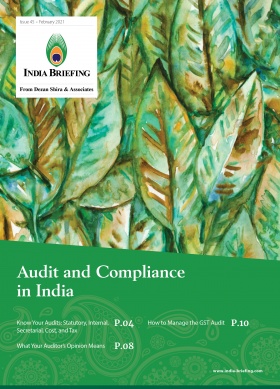SEBI Relaxes Delisting Norms to Encourage Mergers & Acquisitions in India
SEBI’s relaxation of delisting rules for acquirers of a company streamlines the mergers and acquisitions process in India. The new framework has prioritized investor interest by doing away with the complexities and contradictions in the existing process. This amendment in regulations will also aid first-time acquirers.
On September 28, 2021, Securities and Exchange Board of India (SEBI), the Indian regulatory body for securities and commodity market, announced a new framework to amend the delisting framework after open offer. The change in delisting norms will make mergers and acquisitions (M&As) of listed companies an easier exercise for all the investors in the process. It will also aid first-time acquirers who can now opt for delisting by offering a suitable and commercially reasonable price without worrying about an extortionate price demanded by the reverse book building method.
In the new framework approved by SEBI, the existing regulatory framework for delisting of equity shares following an open offer as provided under the existing Regulation 5A of the SEBI Takeover Regulations, 2011 (Substantial Acquisition of Shares and Takeovers, 2011) will be amended.
With the amendment, the acquirers will be now allowed to delist a target company effortlessly, as they will be able to launch open and delisting offers simultaneously.
Why has SEBI revised the existing delisting framework?
The new revised framework aims to make M&A transactions for listed companies a more rational and convenient process, harmonizing the interests of all the investors involved in the process, as against the earlier extant framework which posed many directional contradictions and complexities in the takeover of listed companies.
Under the existing process, if an open offer is initiated, compliance with Takeover Regulations, 2011 could take the incoming acquirer’s holding to above 75 percent or in some cases, even to the extent of 90 percent. However, to ensure compliance with the Securities Contract (Regulation) Rules, 1957 (SCRR), the acquirer would be forced to first narrow down their stake to 75 percent due to the limitations posed by the SEBI (Delisting of Equity Shares) Regulations, 2021 (Delisting Regulations), which would restrict the acquirer from delisting unless the holding is first brought down to 75 percent. This proves to a be conflicting process, creating complications for the investors.
What are the obligations in the new delisting framework?
Under the new framework, the existing obligation – of first selling down to 75 percent and then attempting a delisting process as per the reverse book building process – has been scrapped and the new delisting threshold has been set at 90 percent.
The key features of the revised framework for delisting pursuant to an open offer are as follows:
- The framework shall be made available in the case of open offers under the Takeover Regulations for an incoming acquirer, who is seeking to acquire control under Regulation 3(1) or Regulation 4 or Regulation 5.
- Under the new framework, the acquirers need to disclose their intention to delist the firm via an initial public announcement.
- If the acquirer wishes to delist the target company, they must propose a higher price with suitable premium over the open offer price. It must be noted that the premium to be offered over open offer price is mandatory.
- In case the response to the open offer leads to the delisting threshold of 90 percent being met, all shareholders who tender their shares shall be paid the same delisting price.
- If the response to the offer leads to the delisting threshold of 90 percent not being met, the takeover price will be valid for those who tendered their shares.
- In a situation where a company does not get delisted, pursuant to the open offer under this framework, and the acquirer crosses 75 percent due to the open offer, a period of 12 months from the date of completion of the open offer will be provided to the acquirer to make further attempts to delist the company under the Delisting Regulations using the reverse book building mechanism. If the delisting is unsuccessful in this extended period of 12 months, the acquirer, subsequently, must comply with the minimum public shareholding norm within a period of 12 months from the end of such period.
- If the acquirer at the time of open offer, explicitly specifies that it would opt for remaining listed, and the total stake at the end of the tendering period reaches above 75 percent, then the acquirer may opt for either proportionately scaling down of purchases made under both, that is, the underlying share purchase agreement and the shares tendered under open offer, in such a manner that the 75 percent threshold is never crossed or alternatively, the acquirer shall have to become compliant with minimum public shareholding within the time stipulated under SCRR.
- While undertaking delisting under this framework, all the provisions of the Delisting Regulations shall be applicable mutatis mutandis (after making necessary changes). These changes must adhere to the existing provisions of the revised framework.
This article was originally published on October 11, 2021. It was last updated on December 8, 2021.
About Us
India Briefing is produced by Dezan Shira & Associates. The firm assists foreign investors throughout Asia from offices across the world, including in Delhi and Mumbai. Readers may write to india@dezshira.com for more support on doing business in in India.
We also maintain offices or have alliance partners assisting foreign investors in Indonesia, Singapore, Vietnam, Philippines, Malaysia, Thailand, Italy, Germany, and the United States, in addition to practices in Bangladesh and Russia.
- Previous Article Modi Putin Meeting, 2+2 Dialogue Expected to Strengthen India-Russia Ties
- Next Article What Makes Tamil Nadu a Top Foreign Investment Destination in India?








